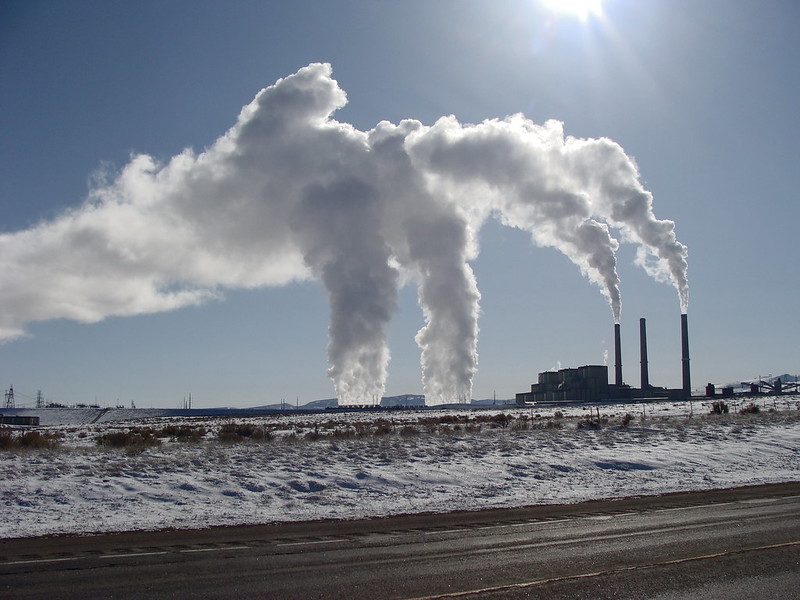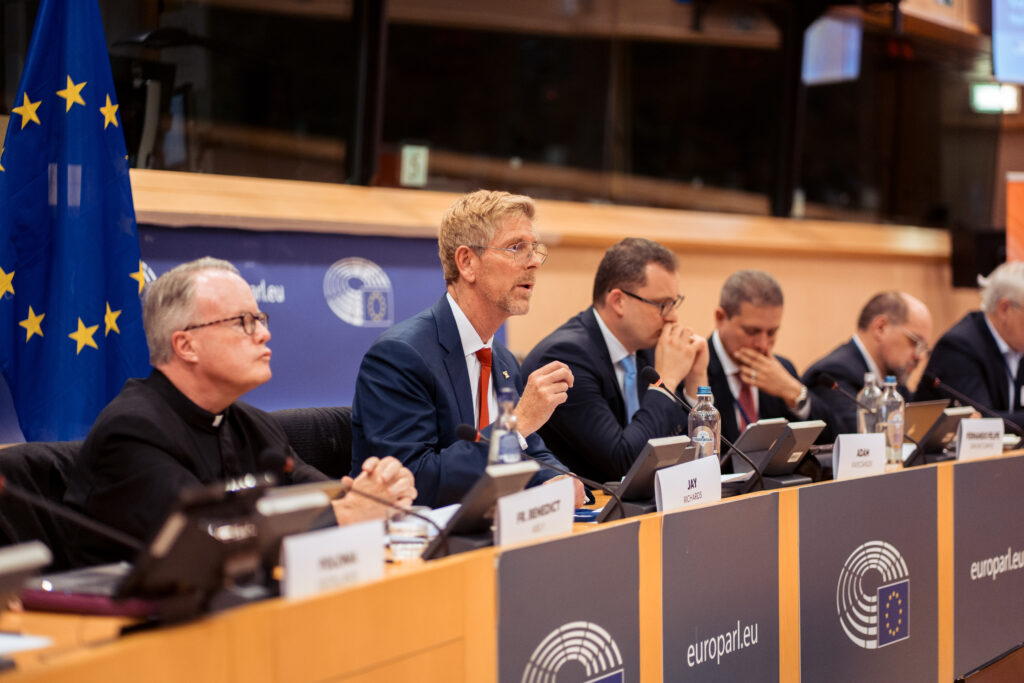In Colorado, fossil fuel interests are vigorously opposing legislative bills meant to clean up the state’s heavily polluted air. That might seem like business as usual, but a new report reveals a more serious dynamic: Statewide, firms lobbying on behalf of oil and gas interests often also represent the very groups the proposed rules are intended to protect.
Taken together, four anti-smog bills currently under consideration in the state legislature — SB 165, SB 166, HB 1330, and HB 1339 — would strengthen air quality oversight in Colorado, while subjecting oil and gas polluters to more rigorous controls. That might seem like a top priority for public entities in a state where 80 percent of residents live in a community with unhealthy air, compared with just 39 percent nationwide, according to the American Lung Association.
But the report, published today by the nonprofit legislative watchdog F Minus and Brown University’s Climate and Development Lab, found that Colorado counties with the highest levels of air pollution haven’t exactly sprung into action. Instead, several have retained fossil fuel lobbyists to work on their behalf.
“Residents’ tax dollars are essentially going into the pockets of fossil fuel lobbyists, which is crazy,” said James Browning, founder and executive director of F Minus, who co-authored the report. “In the future, what is going to happen to these Colorado counties? Well, they’re going to be hit with catastrophic climate mitigation costs, they’re going to need disaster relief around fires, drought, flooding. When we get to that point, 10 to 20 years from now, we’re going to look back and ask, ‘so how did this happen?’ Well, it happened because the county’s own lobbyists were blocking progress on climate.”
A Troubling Pattern
The report along with a DeSmog review of public Colorado Secretary of State office lobbying data reveals a troubling pattern of conflicts of interest within lobbying groups advocating both for and against environmental legislation. Browning says fossil fuel lobbyists across the country have also been known to represent environmental groups and entities that advocate for victims of climate change — but that Colorado “takes it to the next level,” with some firms even lobbying both for and against specific pieces of legislation.
Weld County, a 4,000-square-mile area northeast of Denver, this year received failing air quality grades for ozone and particulate matter — pollutants linked to fossil fuel extraction — from the American Lung Association. But in 2023 and 2024, the F Minus report found, it employed the lobbying services of Colorado Legislative Strategies, a firm with multiple fossil fuel clients, including the Colorado Oil & Gas Association. Weld County also employs Capitol Solutions, a lobbying firm it shares with the Kiewit Corp., a construction company that includes large-scale LNG extraction projects among its specialties.

(CC BY-NC-ND 2.0)
Jefferson County, directly west of Denver, and El Paso County, which includes Colorado Springs, also received failing grades for ozone this year. According to the F Minus report, both counties also employed lobbyists shared with Xcel Energy, Colorado’s largest electricity provider and top lobbying spender, which also operates gas-fired power plants and other natural gas projects throughout the state.
Micah Parkin, executive director of the environmental advocacy nonprofit 350 Colorado, described being disturbed to discover how often lobbyists who were paid to fight clean air legislation were also being retained to advocate for taxpayer-funded entities responsible for protecting public health.
“How can they do both effectively?” she said. “I don’t believe they can.”
Trevor Culhane, the Brown Climate and Development Lab researcher who co-authored the report, said that lobbying is all about relationships — and it can be hard to tease out those intermingled interests even when so-called firewalls between clients are in place.
“When lobbying firms represent both the polluter and the people experiencing pollution, it represents a pretty clear conflict of interest,” he said. “And it makes you question: Okay, which group is this lobbying firm working harder for?”
Sometimes client interests are uncomfortably misaligned, according to the report. The firm Capitol Focus, which Browning said has lobbied on over 300 bills for the American Petroleum Institute, also represents Rocky Mountain Cancer Centers, one of the state’s major oncology providers — despite the growing links between fossil fuels pollution and cancer.
But those perceived conflicts of interest are often even more direct. In its review of Colorado Secretary of State office lobbying data going back to 2007, shared exclusively with DeSmog, the report’s authors found numerous instances of what they called “double dipping”: firms simultaneously lobbying for and against environmental regulations.
In 2023, OnTheBallot Consulting lobbied for SB 16, “Greenhouse Gas Emission Reduction Measures,” on behalf of the Colorado Alliance of Mineral and Royalty Owners. At the same time, it lobbied against the bill for Interwest Energy Alliance, a consortium of renewable energy companies.
In 2022, a staffer from the firm PoliticalWorks lobbied against HB 22, “Public Protections from Toxic Air Contaminants,” on behalf of Onward Energy, a company with both renewables and natural gas in its portfolio. The staffer took that side for three days before switching to support the same bill on behalf of the Nature Conservancy. At the same time, two other PoliticalWorks lobbyists continued to oppose the bill on behalf of Onward.
Practice Not ‘Uncommon’
When reached for comment, a spokesperson with the Nature Conservancy said its lobbyists have helped the group advocate for important conservation objectives. “We recognize it is not uncommon for these large firms to have diverse client bases, but do expect them to maintain their ethical obligation to avoid any conflicts of interest,” she wrote in an email.
PoliticalWorks and Onward Energy did not respond to requests for comment from DeSmog.
DeSmog’s review of public Colorado Secretary of State data found other examples of this practice. Elizabeth Lo, legislative policy director with Husch Blackwell Strategies, is currently listed as supporting HB 1330 on behalf of Commerce City, a municipality directly northeast of Denver. But Husch Blackwell Strategies is also opposing the bill on behalf of Civitas, a Colorado oil and gas producer.
“We built an internal ‘firewall’ on this bill, so that my lobbying for Commerce City did not intersect with my colleagues’ lobbying on behalf of Civitas and vice-versa,” Lo wrote by email, when reached for comment by DeSmog.
“Law firms can’t do that,” said Richard Painter, a legal ethics expert and professor of corporate law at the University of Minnesota Law School, speaking generally of double-dipping. “If a law firm did that, you’d be in violation of the conflict of interest rules unless both clients gave informed consent and knew exactly what you were doing for the other.”
But lobbying firms, he said, are subject to less stringent rules with more gray area — and though truly egregious examples can be grounds for lawsuits or criminal charges, it can be hard to find the exact line in lobbying cases.
Parkin with 350 Colorado said she found the F Minus report’s findings to be eye-opening, telling DeSmog that it was “really ringing the alarm bell” for the environmental advocacy sector. Her advice for nonprofit groups and local governments? “Be very wary now,” she said. “So that we’re not putting taxpayer dollars, or our members’ and donors’ money, toward firms that are acting as double agents — and not truly representing the public interest.”
“I wasn’t aware of the extent to which these groups had been operating in these ways — so this is news to me, too,” said Max Boykoff, a professor of environmental studies at the University of Colorado, Boulder, whose research relates to the cultural politics of climate change. “I’d like to think that, with more information available, folks can make more informed decisions about what comes next.”
Subscribe to our newsletter
Stay up to date with DeSmog news and alerts






